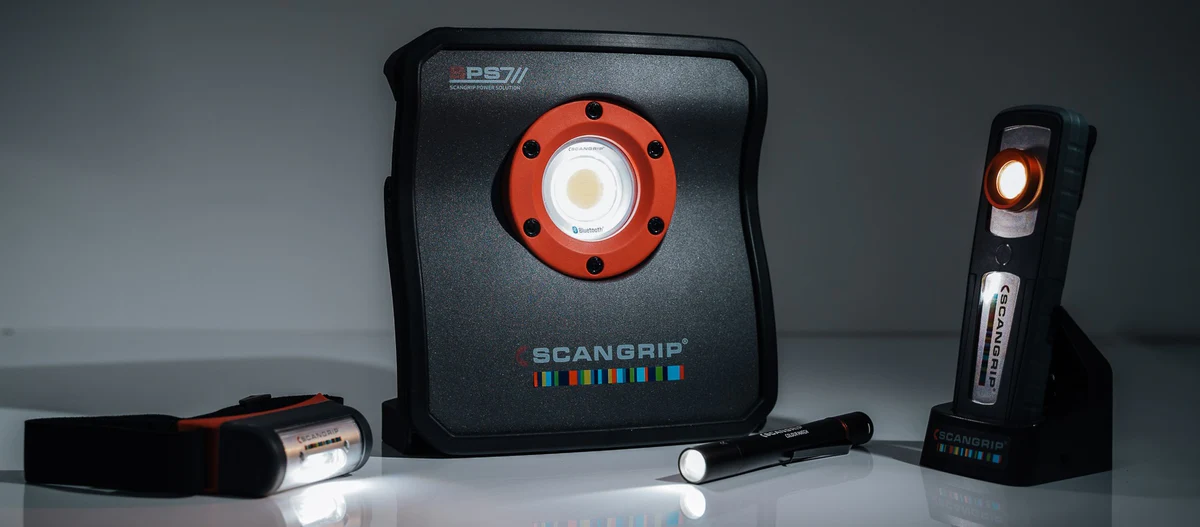Lighting is crucial in every aspect of detailing. From estimating the pad/compound combo for paint defect removal to levelling coatings or highlighting dog hair caught in carpet, each job requires a different type of light.
At the start you can get away with a simple flood light from Bunnings, but truth be told, some investment is required to ensure your detailing rises to that next level.
Different Types of Lighting For Car Detailing
A combination of handheld lights, head torches, tripod lights and overhead lighting leads to the perfect detail. The best studios have a mix of fluorescent and downlights filling the overhead space and removing the majority of shadows in the area.
@rossonicardetail on Instagram is regarded as the best detailer to date. The workspace is out of this world. A quick scroll of his feed shows ample overhead lighting. While the average joe would not have the budget for this type of setup, it’s easy to see why overhead lighting is critical.
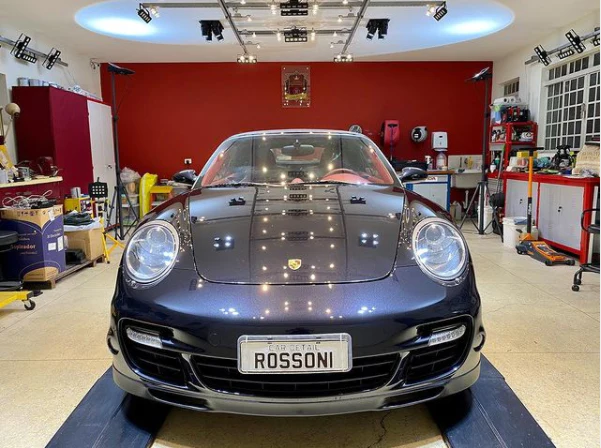
Key Lighting Features
Utilising a tripod light for your works is by far one of the easiest ways to move an abundance of light into whatever position you need- especially if it’s rocking a set of wheels.
High CRI, adjustable Kelvins and Lumens are just the beginning. Shock and waterproof battery-operated devices reduce the clutter and improve the visibility of faults in your work at hand. Whether it be swirls, buffing a window and flattening high spots on a ceramic coat, you can work confidently with a dedicated detailing light over that $40 Arlec tripod.
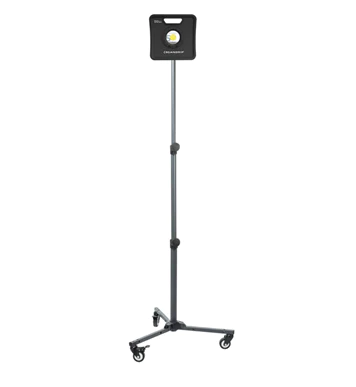
If you cannot justify the cost of a dedicated work light as suggested above, a handheld inspection light is an absolute must. It functions not just to illuminate the area, but to catch defects that may have been missed.
Yes, your workspace may be well-lit, but to really highlight scratches you need these pinpoint accurate hand-held lighting systems.
Lighting Setup in a Garage
Honestly, I did struggle to decide which lights were most important but definitely a handheld system along with a floodlight is a great start. It takes time to build up a repertoire of lighting systems in your space, so work yourself up from there.
Here’s a sneak peak of the lighting system in my home garage consisting of:
- Ceiling: 6 downlights, 1 Fluro
- Light Tower: 14 fluros, varying temperatures on separate switches, two floodlights at 45 degrees.
- Head Torch
- Detail Light
- Inspection Light
- 8000 Lumen Iron Horse Tripod
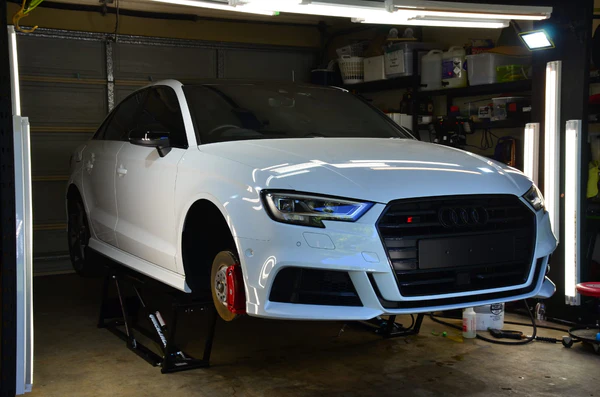
The image below shows how various types of lights and colour temperatures highlight different paint imperfections. Particularly during paint correction and ceramic coating applications, lights with a higher CRI+ (colour rendering index) allows light colour customization to provide ideal conditions for discovering paint defects.
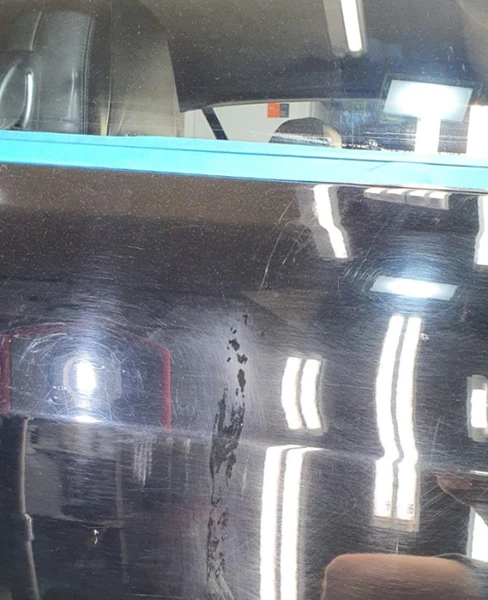
Thomas Mayer Automotive
Detailer
OE+ Refinisher
W: www.mayerdetailing.com.au
E: tom@mayerdetailing.com.au
FB / IG: @mayer.detailing
Conclusion
Investing in the right lighting is essential for achieving professional-level detailing results as explained by our guest blogger from Thomas Mayer Automotive.
By understanding the types of lighting available and their key features, you can create a well-lit workspace that helps you identify and correct imperfections with ease.
Start with basic lighting and gradually build up to a more sophisticated setup as your needs and budget allow.
Ready to upgrade your own detailing space? Get tips and explore our products to improve your detailing setup.
For more tips and products to improve your detailing setup, visit the Detail Store.
Frequently Asked Questions (FAQs)
- Proper lighting helps identify and correct imperfections, ensuring a high-quality finish. It’s crucial for tasks such as paint correction, coating applications, and interior cleaning.
- A combination of overhead fluorescent or LED lights, handheld inspection lights, and adjustable tripod lights provides the best coverage and flexibility for detailing.
CRI stands for Color Rendering Index. It measures a light source’s ability to reveal the true colours of objects compared to natural light. High CRI lighting is essential for accurately seeing paint colours and imperfections.
- Adjustable Kelvins (colour temperature) and Lumens (brightness) allow you to customise the lighting to suit different detailing tasks, improving visibility and effectiveness.
Battery-operated lights offer portability and reduce clutter, making it easier to position light exactly where you need it. Look for durable, shock and waterproof options.
While you can start with household lights, investing in dedicated detailing lights will provide better visibility, reduce shadows, and improve your ability to spot imperfections.
A head torch provides focused light in tight spaces and follows your line of sight, making it easier to see and correct small details without needing to adjust your lighting setup.
Start with essential lighting such as a handheld inspection light and a floodlight. Gradually add more specialised lights, like tripods and overhead fluorescents, as your detailing needs grow.
-

Calvin brings a wealth of experience across multiple engineering disciplines, including chemical, mechanical, and electrical engineering. His in-depth knowledge of filtration systems and hydraulic pumps has positioned him as an expert in the pressure washer product category. With a unique combination of technical expertise and business insight, Calvin excels at solving complex challenges and driving innovation, particularly in the car detailing industry.
-

Aaron is a passionate car detailing enthusiast who channels his expertise and love for pristine vehicles into engaging blog content for a leading detail store website. With a keen eye for detail and a wealth of knowledge about the latest products and techniques, Aaron provides invaluable insights and tips to fellow car enthusiasts. His dedication to achieving showroom-quality results and his ability to explain complex processes in an easy-to-understand manner make his blog a go-to resource for anyone looking to elevate their car detailing game.

